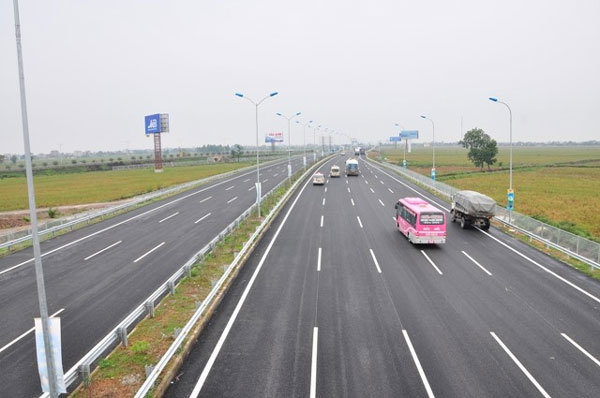The project remains controversial. The express railway would have the total length of 1,559 kilometers and link Hanoi in the north and HCMC in the south. The implementation is expected to last 30 years, from 2020 to 2050.

This is a ‘mammoth project’ considering the required financial resources, equal to more than one-fourth of Vietnam’s GDP in 2017 ($229 billion), and it may ‘drive the national economy into dangerous track’ as commented by some experts.
In their eyes, pouring money into expensive technology would put Vietnam at a risk. Even rich countries in the world also have to think carefully before developing express railways.
The express railway accounted for 13.6 percent of total length of the nation’s railway in South Korea in 2003. The figures were 7.7 percent in Japan and below 5 percent for France and Germany. If Vietnam implements the north-south expressway, the proportion would be 37.9 percent.
An analyst commented that Vietnam seems to go against the growing trend in the world. In principle, express railways are developed to give additional capacity to existing railways.
Meanwhile, a traditional railway is less costly in operation and investment rate, while it is more suited to carry cargo and passengers.
|
This is a ‘mammoth project’ considering the required financial resources, equal to more than one-fourth of Vietnam’s GDP in 2017 ($229 billion), and it may ‘drive the national economy into dangerous track’ as commented by some experts. |
Khuong Quang Dong, an analyst, in his article on Thoi Bao Kinh Te Sai Gon, pointed out that express railways are ineffective in many countries.
In France, high-speed rail service (TGV) can ‘live’ because it is subsidized by the government. As the economy met difficulties, the French government cut the subsidy fund, thus increasing TGV ticket prices. As a result, the TGV industry fell into crisis over the last few years.
The Taipei-Cao Hsiung expressway in Taiwan has also been unprofitable. Making debut in 2007, the railway incurred a loss of $1.5 billion by 2014. In South Korea, the railway from Seoul to Incheon international airport closed after four years of operation.
Meanwhile, Vietnam is a developing economy which lacks capital and high technologies. The development of such a gigantic project would put a heavy burden on the budget.
Some government officials argue that the project would bring big benefits, including the opportunity to develop train and railway manufacturing technologies, and generate jobs.
It is expected that half of the total investment capital of $59 billion would be implemented by domestic enterprises. The officials believe that developing an express railway is a way to ‘prepare for the future when Vietnam needs diversified transport forms to create a competitive market’.
RELATED NEWS
Construction work on North-South Expressway to begin
MoT to introduce investment opportunities for North-South Expressway
Mai Lan
 The government is submitting to the National Assembly a mammoth north-south express railway project worth $59 billion.
The government is submitting to the National Assembly a mammoth north-south express railway project worth $59 billion.